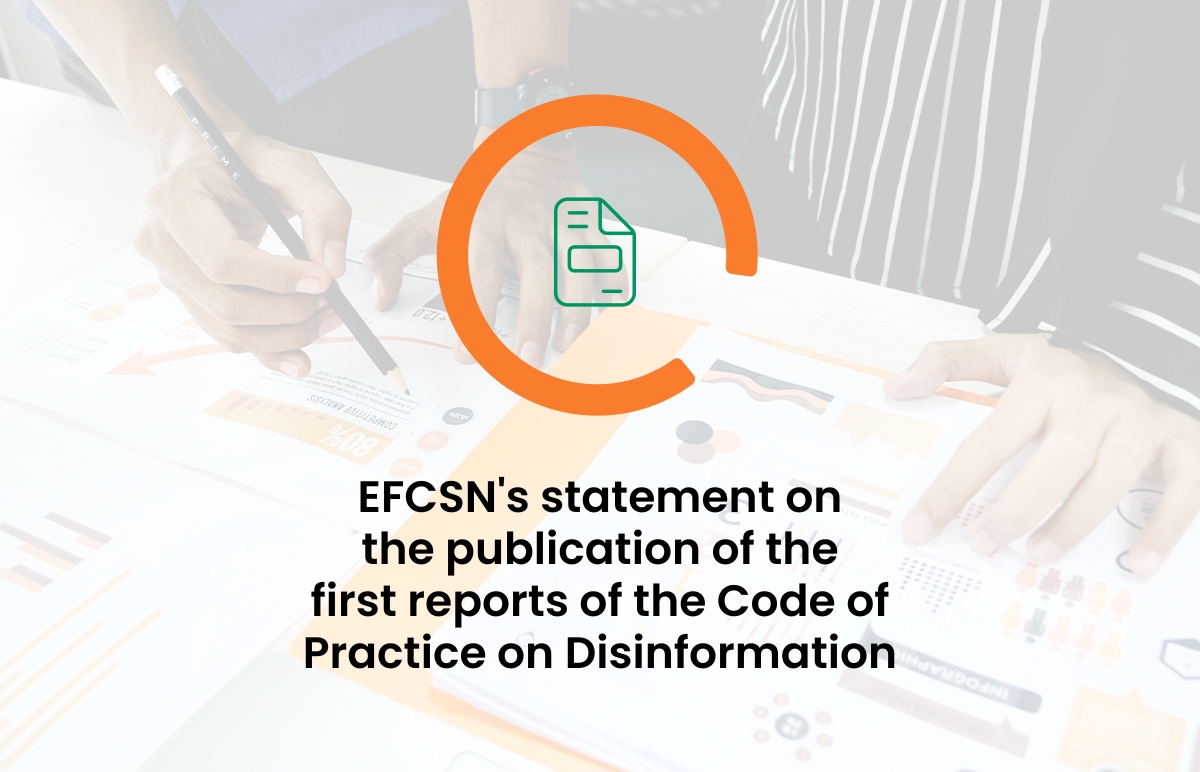
Fact-checkers: Platforms need to improve drastically to comply with the Code of Practice and the DSA
The Code of Practice on Disinformation has been in place for seven months, but the first set of reports by large online platforms is disappointing
Brussels, February 9 2023 – The European Fact-Checking Standards Network (EFCSN) has seen a first review of the reports submitted by online platforms as part of their commitment to the Code of Practice on Disinformation. An analysis by fact-checking organisations who are signatories to the Code and part of its Task Force found the platforms have fallen short of their commitments to improve cooperation with fact-checkers in order to reduce the harm from misinformation and disinformation on their platforms.
The EFCSN believes the platform signatories would need to announce major changes in their next set of reports to fulfil such commitments under the Code of Practice and avoid possible breaches of the Digital Services Act once it is fully in place.
Twitter has reported no use of fact-checking in their services or collaboration with fact-checking organisations. The only meaningful action the company has reported on its commitment to facilitate fact-checkers’ access to relevant information is an API widely used by fact-checking organisations worldwide that, according to the company, is ceasing to be free to access. The report does not provide any information on the status of numerous other commitments.
Google and YouTube’s reports offer no details on the commitment to integrate, showcase, or consistently use fact-checking for the benefit of their users. This absence of transparency has long been a concern to the fact-checking community and is now compounded by the fact that Google and Youtube’s reports indicate that the services do not intend to take specific actions in this regard over the next few months. Consequently, the EFCSN fails to see how Google and YouTube intend to meet their fact-checking related commitments under the Code of Practice.
Microsoft, through Linkedin and Bing, has expressed a willingness to do more in the coming months, but at this time could not report meaningful use of fact-checking.
TikTok has an ongoing collaboration with a small number of European fact-checking organisations whose scope and volume is too limited to achieve a consistent coverage of all member states and languages, as TikTok has committed to. In addition, their approach to respond to disinformation with content removal – without offering any additional information to users – remains worrying.
Finally, Meta’s report outlines what is to date the most structured, transparent and efficient fact-checking programme employed by a major platform, which many European fact-checking organisations participate in. Nevertheless Meta needs to make its programme significantly more transparent and enable independent evaluation of its effectiveness.
About the EFCSN
The European Fact-Checking Standards Network represents fact-checkers who commit to the highest standards of independence, transparency, and methodological and journalistic quality as required by the European Code of Standards. The Code was written collaboratively by more than 40 independent fact-checking organisations from over 30 European countries.
The EFCSN will be publishing a detailed analysis of the platforms’ reports in due course.
We encourage platforms to make contact with the EFCSN to discuss how to fulfill their commitments and reduce the harm from misinformation and disinformation.
Contact the EFCSN policy team for more details: